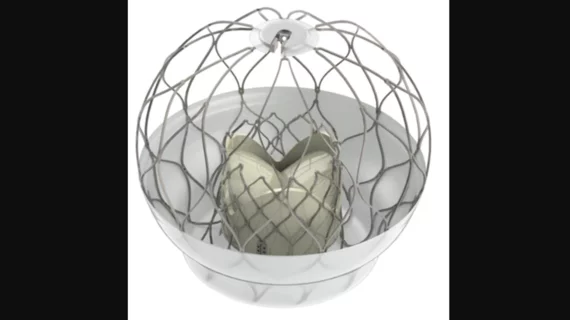FDA grants breakthrough device designation to new TMVR device from 4C Medical
4C Medical Technologies, a Minnesota-based medical device company focused on structural heart disease, has received the FDA’s breakthrough device designation for its AltaValve System for transcatheter mitral valve replacement (TMVR).
The FDA’s breakthrough devices program is designed to help medical devices make it through the approval process faster than they would otherwise. The agency’s representatives work directly with the device manufacturer, for example, and any submissions related to the device are prioritized.
The supra-annular AltaValve System was designed to treat both primary and secondary mitral regurgitation (MR) patients. It is implanted via transseptal access and positioned above the native mitral valve when implanted. 4C Medical has said it can still be used when patients present with a history of valve repair.
After reviewing positive data on the valve’s safety and effectiveness from an early feasibility study, the FDA granted it breakthrough device designations for two separate indications: treating moderate-to-severe or severe MR and treating moderate-to-severe MR with moderate-to-severe mitral annular calcification.
“The AltaValve System offers a novel transcatheter therapeutic option to fulfill an unmet clinical need in patients who are unsuitable for surgery or transcatheter edge-to-edge repair,” Jeff Chambers, MD, founder and chief medical officer of 4C Medical, said in a statement. “The atrial-only fixation of the technology is designed to minimize the complexities and variabilities associated with anchoring to the mitral annulus. This differentiated approach preserves critical cardiac structures, reducing the risk of left ventricular outflow tract obstruction or damage to the left ventricle.”
“The dual Breakthrough Designation of the AltaValve System is an important milestone for the 4C Medical clinical program, and we are excited to assess both indications in the upcoming the AltaValve Pivotal trial,” added Saravana Kumar, CEO and president at 4C Medical. “This advancement enables us the opportunity to bring this needed technology to our patients even sooner.”
This new TMVR device is still in development and has not been approved by the FDA for use outside of investigational studies.
4C Medical plans on launching a larger global trial by the end of the year as it works toward gaining both FDA and CE mark approval.

